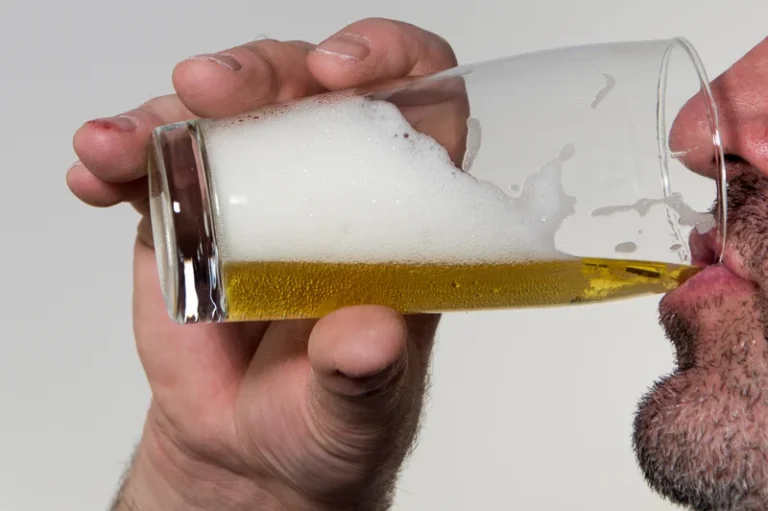Alcohol and Memory Loss: Connection, Research, and Treatment

Sometimes, a smell, saying, or image may flash back in your mind, but you can’t force a memory to return. In addition to these considerations, older people also tend to take more medications than younger people. These medications can potentially interact with alcohol, which can worsen symptoms. These situations can range from small, such as where a person put their keys, to large, such as forgetting what happened in night. According to Duke University, the inability to remember anything from a night out usually occurs after a person has had five or more drinks. Research suggests a high alcohol intake may contribute to the development or progression of Alzheimer’s disease.

How Alcohol Is Linked to Memory Loss

Since we excluded gender- and beverage-specific studies, no conclusions can be drawn concerning different effects for men or women or effects of specific ingredients of alcoholic beverages other than alcohol. An even greater amount of evidence concerning the link between dementia and alcohol consumption might be gathered by using further databases and including publications in languages other than English for a more thorough systematic review. However, people who do not drink may have given up alcohol after suffering health problems from excessive drinking. These studies don’t separate out the lifetime non-drinkers from those who have quit drinking. Combining both into the same group makes the non-drinking group seem like they had a higher risk of dementia than if lifetime non-drinkers were considered separately.
Signs and Symptoms of Alcohol-Related Dementia
- Excessive alcohol may compromise executive functions in people with dementia and can lead to memory, learning, problem-solving, and judgment problems.
- It’s possible that a person can prevent this syndrome from getting worse, but they usually must stop drinking and enhance their nutrient intake.
- Alcoholic dementia involves memory loss and a variety of other cognitive impairments.
- This is especially true if they’re older — you may wonder if their symptoms are related to aging.
- Alcohol-related dementia is a brain disorder that causes memory, learning, and cognitive impairment due to alcohol use disorder.
Cardiovascular disease has emerged as a prominent player in the complex landscape of dementia. Preventing, dyslipidaemia, unhealthy Western type diets, hypertension, diabetes, being overweight, physical inactivity, smoking, and high alcohol intake have the potential to diminish not only cardiovascular disease but also dementia. Then, they compared this Alzheimer’s gene expression data with previously published RNA sequencing data from individuals with AUD. Talk with a qualified healthcare professional about alcohol consumption if you have Alzheimer’s disease or may be at risk of developing it.
- But your care team can prescribe medications to help with withdrawal symptoms.
- Thiamine is essential for brain health and a thiamine deficiency can lead to permanent brain damage.
- Together, understanding the role of cardiovascular risk factors in dementia, improving GWASs for VaD, and advancing clinical trials are crucial steps in addressing this significant public health challenge.
- It is not easy to help a person with alcohol addiction to stop drinking.
Getting Help for Alcohol Abuse and Addiction
Nutrition problems, which often accompany long-time alcohol misuse, can be another contributing factor to alcohol-related dementia, since parts of the brain may be damaged by vitamin deficiencies. Coping with alcoholic dementia can be difficult for a person who is experiencing it, as well as for their loved ones. You don’t have to go through this alone—seeking help from healthcare providers, as well as support groups, can https://ecosoberhouse.com/article/how-long-does-alcohol-stay-in-your-system-blood-and-urine/ help you as you learn how to manage your alcohol use and how to cope with the effects of alcoholic dementia. Hypertension and type 2 diabetes surface as significant causal risk factors for both AD and VaD, as consistently illustrated in observational and Mendelian randomization studies.

Although there are cases where the damage is permanent, abstaining from alcohol and adopting a healthy lifestyle may prevent further injury and potentially help build new connections, improving symptoms. However, in degenerative diseases, regaining lost functions is challenging, as these diseases involve ongoing cell death. It’s more accurate to specify the type of dementia, such as dementia related to thiamine deficiency or cerebellar degeneration due to alcohol use. Alcohol addiction treatmentoptions include outpatient and inpatient treatment. Outpatient treatment involves going to regular physical and mental health appointments to get treatment and learn how to overcome alcohol addiction while otherwise keeping any work and social obligations.
- You may also get a brain scan to rule out other potential conditions, like stroke, tumor, or a brain bleed caused by physical trauma.
- This means that the number of people living with ARBD is probably higher.
- This should ideally be spread over three or more days because ‘binge-drinking’ is particularly harmful to the brain.
- While many previously published epidemiological studies reported a risk reduction by light to moderate alcohol consumption, there is no persuasive model of an underlying biochemical mechanism.
ARBD is caused by a person regularly drinking or binge-drinking much more alcohol than the recommended limit. Alcohol can damage the can alcoholism cause dementia brain in several different ways, but the most common are the following. Current NHS guidelines state that both men and women should limit their intake to 14 units a week. A unit is dependent on the amount of pure alcohol in a given volume and can be calculated for specific drinks. However, a person will likely need to take thiamine supplements and stop or significantly cut back on alcohol consumption for the best results.
You should discuss your intentions with your healthcare provider, who can work with you to help plan your next steps toward recovery. If you or a loved one is living with AUD, it can be challenging to stop drinking. Alcohol withdrawal can be dangerous if you abruptly stop drinking after consuming large amounts of alcohol for a long time. Therapy for alcoholic dementia can include management of AUD, nutritional supplementation to compensate for nutrient deficiencies, and exercises to help improve cognition (thinking abilities) and motor skills. Dementia has many causes, and it can be difficult to distinguish causes. Sometimes, physical changes such as movement disorders or coordination problems can help differentiate types of dementia.
Alcohol-related ‘dementia’

Nevertheless, seek a doctor’s advice on reducing your alcohol intake to prevent withdrawal symptoms. Psychosocial support from close family members and friends can also be helpful. Your doctor may recommend nutrition and other medications to treat any specific symptoms. In some severe cases of alcohol-related dementia, rehabilitative care may be necessary. A large study of 36,678 typically healthy middle-aged and older persons discovered similar associations between regular alcohol intake and brain alterations 5.
Mixing Weed and Alcohol: Effects and Risks
Older individuals are more vulnerable to the short- and long-term effects of alcohol use on their brains. If the person is still addicted to alcohol, treatment for the addiction is the first step, and many forms of help are available. Alcoholic dementia involves memory loss and a variety of other cognitive impairments.
